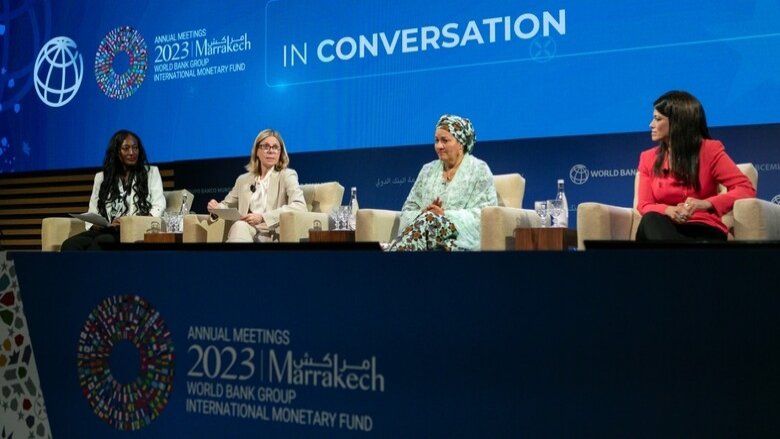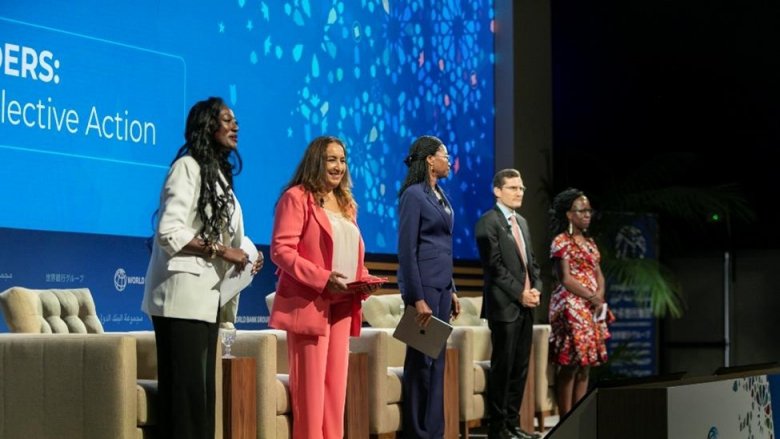During the IMF-World Bank Annual Meetings’ “Engaging Women as Leaders: Innovation, Financing and Collective Action” event on October 11, speakers from government, international organizations, the private sector, and civil society pressed for the economic inclusion and empowerment of women, agreeing on the enormous benefits to economies and societies of accelerating gender equality.
A discussion between Anna Bjerde, Managing Director for Operations, World Bank; Rania Al-Mashat, Minister of International Cooperation, Egypt; and Amina Mohamed Deputy Secretary General of the UN kicked off the event, focusing on the commitment and action of international and national actors to pave a path toward equality, despite the scale of the challenge.
Al-Mashat called women’s participation in the economy “macro-critical” and shared Egypt’s commitment to advancing women’s economic empowerment. She stressed the importance of data and evidence in informing policy dialogue. Al-Mashat also stressed that making progress on national goals each country is contributing to global goals.
Focusing on the global goals, Mohammed emphasized that, “We are off track on gender SGD 5, but we have the solutions.” She pointed out that there is evidence on what investments need to happen, and that governments are doing much more than before on gender equality, but more work is needed to achieve results. “We have the policies, tools, and frameworks. It’s the implementation that needs to be improved,” she said.


